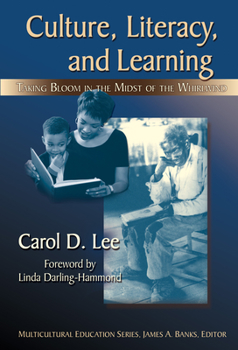Culture, Literacy, & Learning: Taking Bloom in the Midst of the Whirlwind
Select Format
Select Condition 
Book Overview
How can educators improve the literacy skills of students in historically underachieving urban high schools? In this timely book, the author offers a theoretical framework for the design of instruction that is both culturally responsive and subject-matter specific, rooted in examples of the implementation of the Cultural Modeling Project. Presented here, the Cultural Modeling Project draws on competencies students already have in African American Vernacular English (AAVE) discourse and hip-hop culture to tackle complex problems in the study of literature. Using vivid descriptions from real classrooms, the author describes how AAVE supported student learning and reasoning; how students in turn responded to the reform initiative; and how teachers adapted the cultural framework to the English/language arts curriculum. While the focus is on literacy and African American students, the book examines the functions of culture in facilitating learning and offers principles for leveraging cultural knowledge in support of subject matter specific to academic learning.
This much-awaited book offers important lessons for researchers, school district leaders, and local practitioners regarding the complex ways that cultural knowledge is constructed and plays out in classroom life, in the life of a school, and in the life of a whole-school reform initiative.





